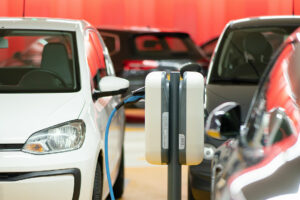
US House Republicans seek to halt Biden EV regulations
WASHINGTON — The Republican-led House of Representatives voted on Wednesday to bar the Biden administration from moving forward with stringent vehicle emissions regulations that would result in 67% of new vehicles being electric by 2032.
“While EVs may play a large role in the future of the auto industry, Washington should not discount other technologies like hydrogen, hybrids, and the internal combustion engine,” said Republican Tim Walberg, a sponsor of the legislation.
The 221 to 197 vote, which included five Democrats joining 216 Republicans, drew a veto threat from the White House, which said it would “catastrophically impair” the U.S. Environmental Protection Agency’s (EPA) ability to issue automotive regulations.
Former President Donald Trump, who is seeking to return to the White House, has vowed to reverse the Biden administration’s electric vehicle rules.
The EPA said in April the proposed 2027 to 2032 standards would cut emissions by 56% compared to the existing 2026 requirements, or 13% annual average pollution cuts.
The agency projects the rules would cut more than 9 billion tons of carbon dioxide emissions through 2055 – equivalent to more than twice total U.S. CO2 emissions last year. Final rules are expected early next year.
Automakers, auto dealers and the United Auto Workers (UAW) union have called on the Biden administration to finalize a less stringent proposal.
The UAW, which represents workers at General Motors, Ford Motor and Chrysler parent Stellantis, said in July the EPA proposal should “better reflect the feasibility of compliance so that the projected adoption of (zero emission vehicles) is set to feasible levels, increases stringency more gradually, and occurs over a greater period of time.”
A group representing major automakers has called for significantly softening requirements, saying the EPA proposal was “neither reasonable nor achievable.”
Toyota Motor has called the EPA proposal stringency requirements “extreme and outside historical norms.”
The auto trade group called the proposal a “de facto battery electric vehicle mandate.”
Representative Frank Pallone, the top Democrat on the Energy and Commerce Committee, said Wednesday Republicans were trying to “legislate away years of innovation in cleaner transportation to put polluters over people.” — Reuters



